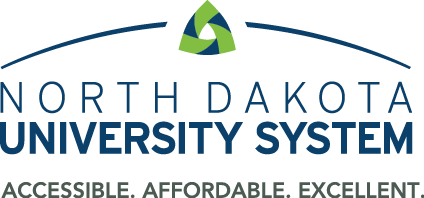
01 Jul Board kicks off process to update strategy
“We have to become masters of change, or become victims of change.”
Those were the opening words of outgoing Board Chairman Don Morton during the State Board of Higher Education’s annual retreat. The topics that followed helped follow-up on the tone and hopefulness of that message by looking to the future – a move that was specifically done to coincide with the updating of the Board’s five year plan.
To kick off its annual strategic planning process, Vice Chancellor of Strategy and Strategic Engagement James “Phil” Wisecup and Public Affairs Manager Chris Erickson outlined upcoming actions that would feed the strategic plan. The Board’s current five-year plan was implemented in 2015 and will conclude June 2020. Throughout the next year, the Strategic Engagement Team would be visiting campuses, continuing ongoing discussions with faculty, staff and students, as well as implement surveys to garner further feedback in order to find consensus for the 2020-2025 plan.
After the brief introduction, the assembled members of the Board, presidents and other stakeholder group representatives split off into four groups to cycle through four topical stations: General Governance, Governance Structure, Workforce Attainment, and Human Resources/Human Talent. The breakout sessions were facilitated by Carrie Herrig, who kept the groups active and providing feedback on all topics. Herrig works at University of North Dakota as a staff career and personal advancement coordinator, and has helped facilitate the strategic planning actions at past retreats.
While the afternoon session of the meeting was focused toward a more hands-on brainstorming session, the morning session provided the Board and other attendees with the basic underlying topics that would guide everything forward. Namely, online education, workforce, technological innovation. Specifically, the Board heard presentations on Unmanned Aircraft Systems, online options for Energy and Agriculture, and a Dual Mission study.
The latter included a later approval from the Board for Dickinson State University President Thomas Mitzel to move forward with changes to implement the Dual Mission model there. The model would allow DSU to continue offering four-year programs, but would provide the university with the ability to offer two-year programs as well.
SkySkopes President/CEO Matt Dunlevy kicked off the morning with a detailed overview of SkySkopes and the UAS industry, in general. Dunlevy noted that his company was one of the first companies to perform Beyond Visual Line of Sight (BVLOS) operations, due in no small part to North Dakota, and NDUS’s, leadership on the topic of UAS.
During Dunlevy’s presentation, he included details on SkySkopes’ outlook, which includes survey/transportation, oil & gas, and more. He said the company provides superior data solutions through professional pilots utilizing autonomous technologies. He added that it would not have been possible had University of North Dakota not stood up the first-of-its-kind UAS program several years ago. He also offered details of the many known applications that UAS was being utilized for, and what possibilities existed in the future.
UND, Kansas State University, Embry-Riddle were the top three institutions in the country to offer education in what he referred to as a “frontier industry.” He added that the threshold had already been passed that indicated how there were more registered unmanned aircraft than traditional aircraft in the country.
The Board was also given its annual refresher on open meetings, open records and conflicts of interest. NDUS Legal Counsel Eric Olson offered insights into best practices for incoming and returning Board members to take on in order to maintain the highest levels of transparency possible.


